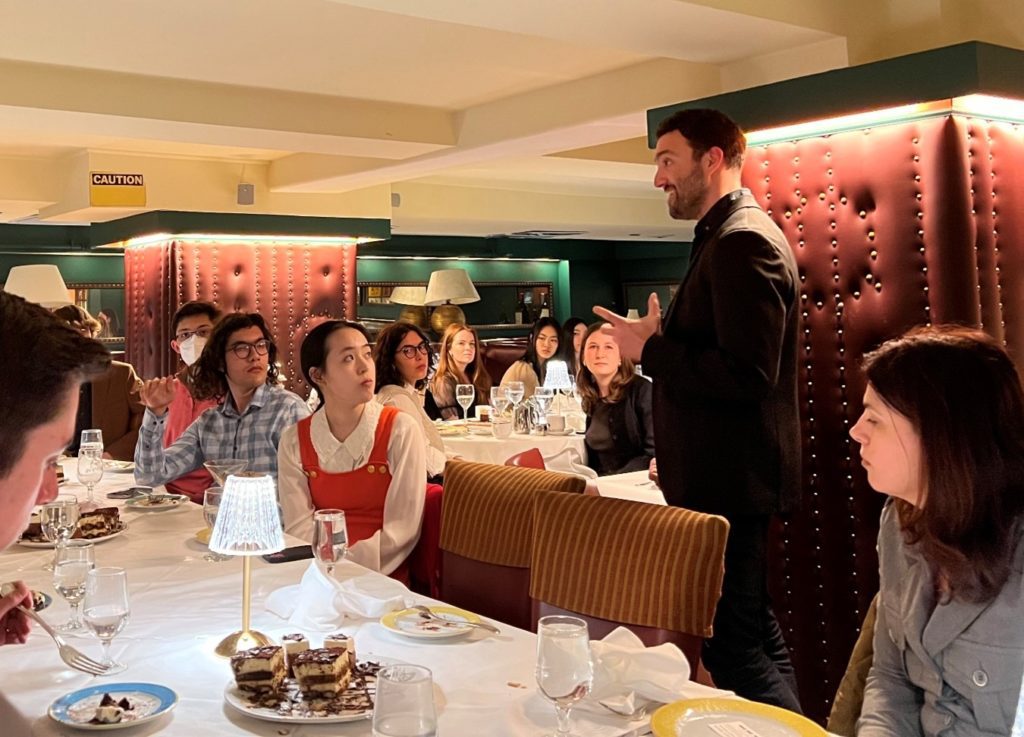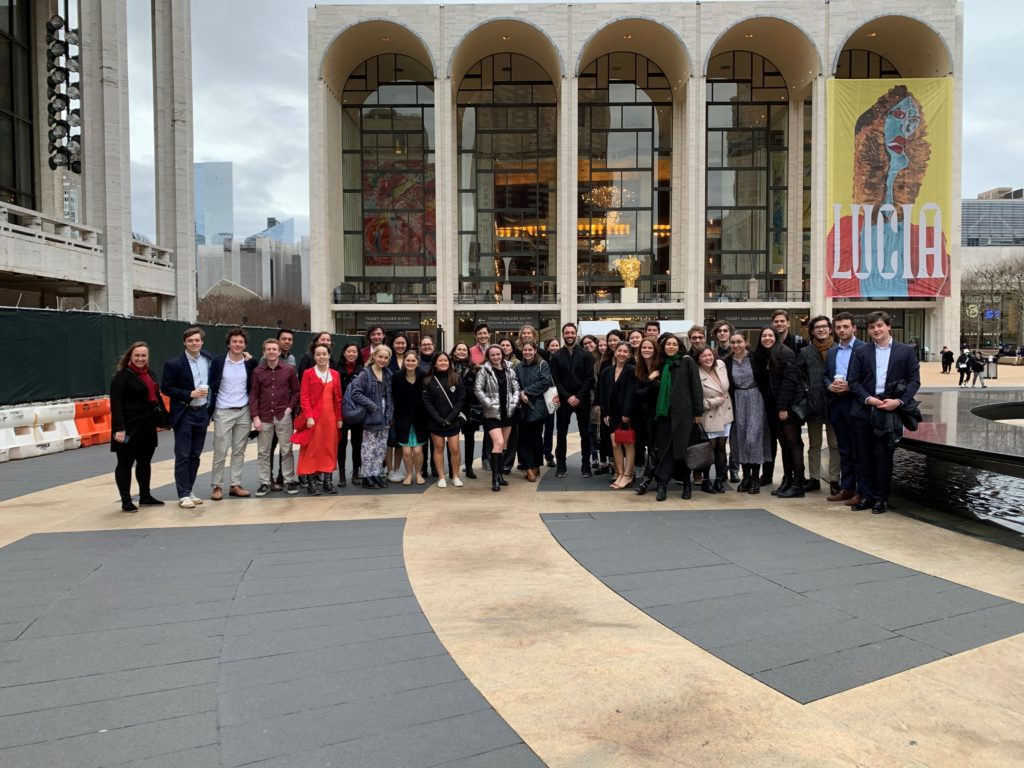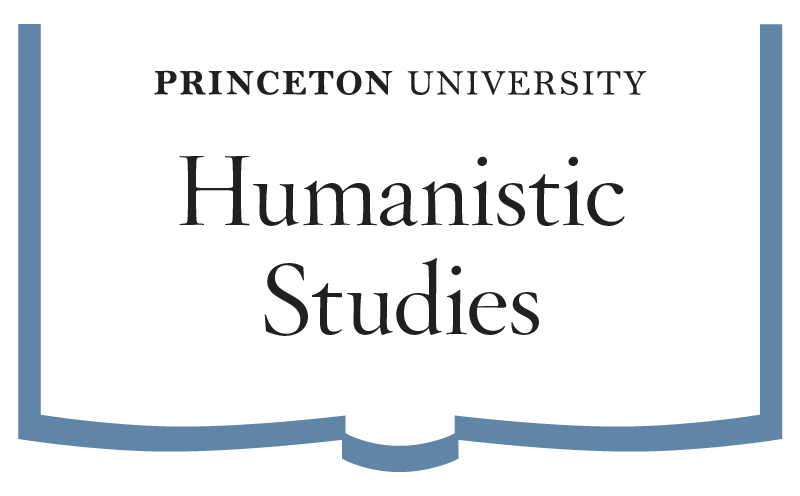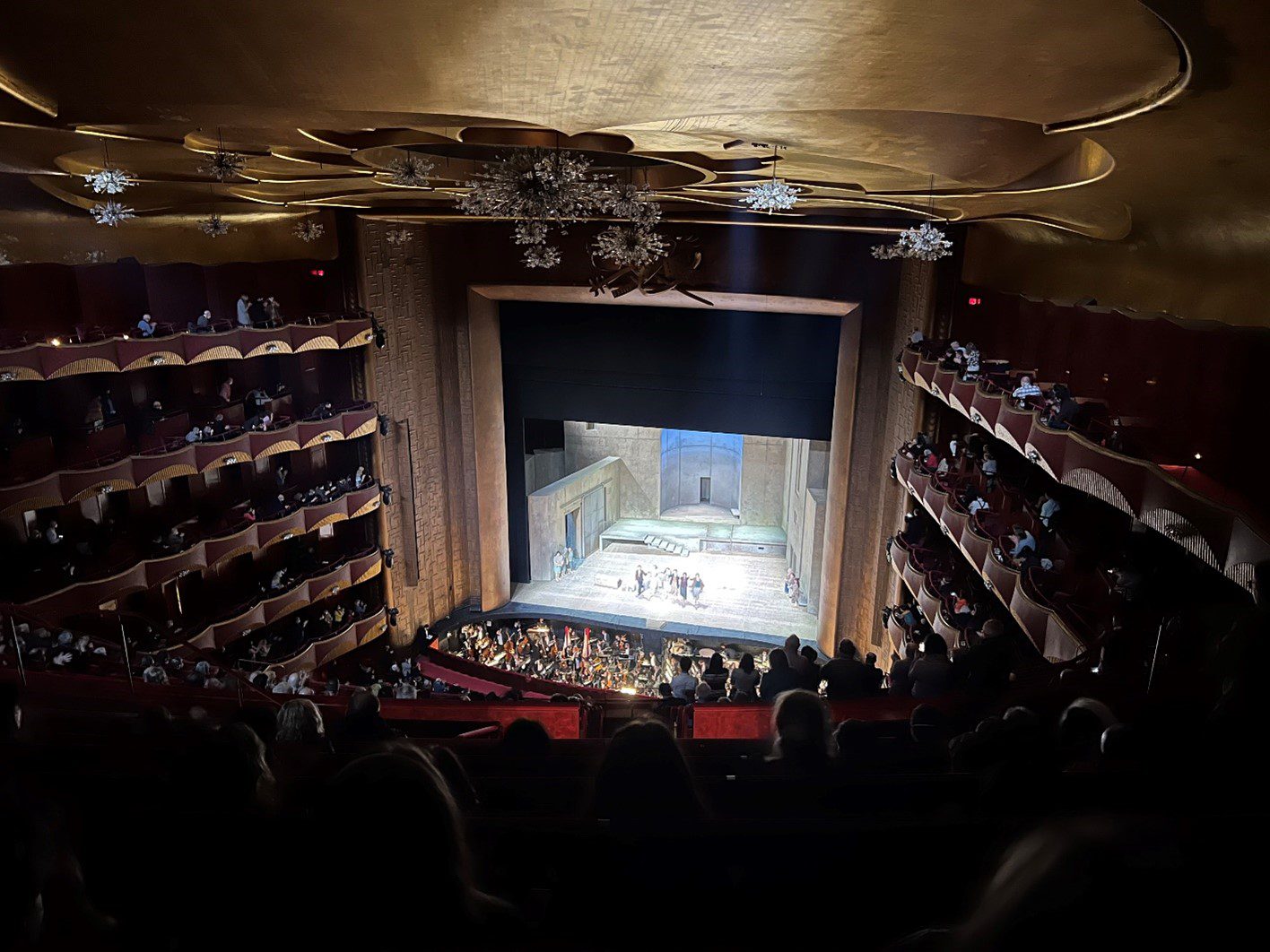By Nolan W. Musslewhite ‘25
The 2021-22 Humanities Sequence class headed to the Metropolitan Opera on April 1 for the opening night of Strauss’s “Elektra.” The performance, said students, was electric.
The night began with a group dinner at Trattoria dell’Arte in New York City, where a special menu was prepared for the HUM trip. Moulie Vidas, Behrman Professor in the Humanities Council and associate professor of religion and the program in Judaic studies, is the instructor coordinating the Sequence this year. At dinner, Vidas explained how the opera integrates into the HUM curriculum, linking it to major works in the sequence by Sophocles, Euripides, Aeschylus, and Freud.

A quick walk down Broadway brought the group to the foyer of the Metropolitan Opera House in Lincoln Square. More than 50 students joined the trip, including several students from the Program in Humanistic Studies (HUM). This excursion was particularly exciting because it was one of the first humanities trips after COVID, and the first opera.
“Elektra” tracks a mythological tale retold by fifth-century Athenian dramatist Sophocles. After soldiering in the Trojan War, Agamemnon, king of the Greeks, returns to his hometown of Mycenae, only to be butchered by his unfaithful wife, Clytemnestra. (Clytemnestra had indulged in a scandalous liaison with a local named Aegisthus, who helped her kill Agamemnon, while the king had been away at war.) A distraught Elektra, daughter of Agamemnon, plots revenge on her mother and Aegisthus. Strauss’s one-act opera explores this volatile, blood-stained household: A mother, Clytemnestra, who turns to the gods to ward off her fated death, and a daughter, Elektra, who plots with her brother, Orestes, to kill her mother and the interloper Aegisthus.
Effie Rentzou, director of the Program in European Cultural Studies (ECS) and professor of French and Italian, co-led the trip. HUM students can use their course credit from HUM 216–219 to satisfy prerequisites for the University’s Certificate in European Cultural Studies. “To have a full understanding of culture…[you must] be exposed to the culture itself, not just study it in the classroom,” Rentzou said.
The opening horns of the opera marked the famous “Agamemnon motif” (a series of four diatonic notes that outline the minor triad) and catapulted students into the drama and terror of the show. “Elektra” is a notoriously grandiose production: Scored for 110 instruments, the massive, sumptuous orchestra thunders beneath soaring operatic passages to reflect the drama of the events portrayed. The climax of the show came when the Agamemnon motif once again boomed through the theater at the death of Aegisthus, linking by music the death of Agamemnon and the revenge of his daughter. For HUM students, Strauss’s masterpiece unearthed a wealth of analysis that deepened their understanding of the semester’s texts.
“Elektra” is considered Strauss’s most modernist opera, as it deploys dissonance and complex psycho-somatic themes to tease out situational irony throughout the performance. The costuming and setting of the opera — colorless and unadorned — emphasized this bleak, modernist depiction.

“The opera has been a highlight of the HUM experience,” said Pia-Sarah Haykel ’25, who is taking the Sequence this year. “The texts we read were brought to life in this moving operatic and orchestral masterpiece, and my first year at Princeton will forever be marked by these enlightening and community-building experiences in HUM.”
HUM students look forward to concluding their final texts of the Sequence this April and, having completed the full-year sweep of the course, will have access to four years of domestic excursions, international travel, and special events.













